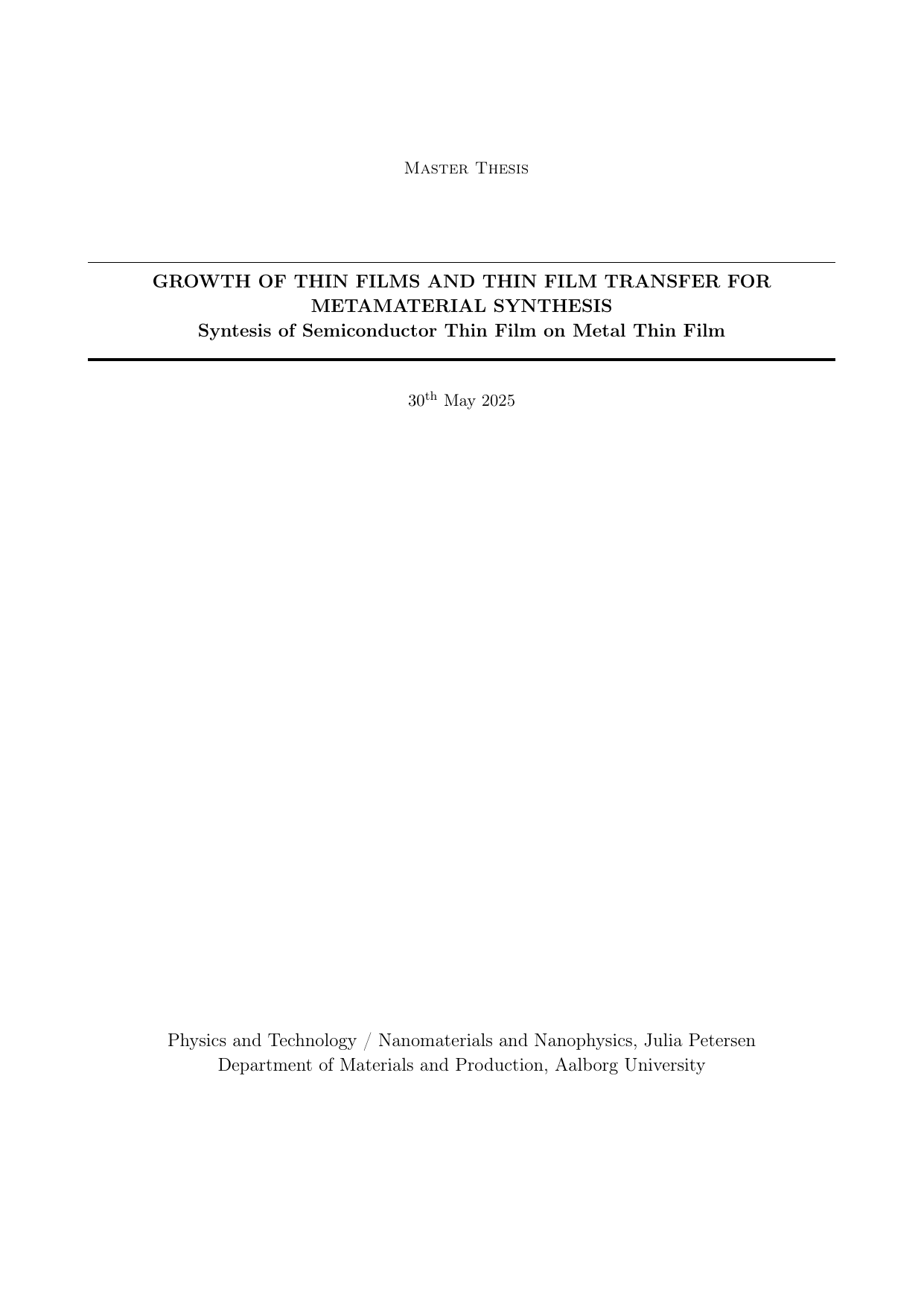
Growth of Thin Films and Thin Film Transfer for Metamaterial Synthesis: Syntesis of Semiconductor Thin Film on Metal Thin Film
Translated title
Growth of Thin Films and Thin Film Transfer for Metamaterial Synthesis
Author
Term
4. semester
Education
Publication year
2025
Submitted on
2025-05-29
Pages
84
Abstract
Growth of different thin films was performed by physical vapour deposition (PVD) and molecular beam epitaxy (MBE). The thin films produced were Au with PVD and GaN with MBE. The Au thin films were grown on a quartz glass substrate with no intermediate layer. For the GaN thin films, different substrates were tested to grow the thin film. Substrates such as Si(100) and muscovite mica were used and heated during deposition. For Si(100) substrate, the Ga source temperature was optimised to be 970 °C and afterwards the sample temperature was optimised. The sample temperatures for this substrate where 650 °C, 710 °C, 725 °C and 760 °C. The muscovite mica samples had two different sizes to ensure the best possible heat diffusion through the sample. The two sizes were 25 × 25 × 0.15 mm and 9×32×0.15 mm. For both of the sizes heat distribution simulations were made in COMSOL[1]. The big muscovite mica samples had sample temperatures of 550 °C to 850 °C with a temperature step of 50 °C. The lowest temperature was to see if it was possible to deposit and the highest temperature was to ensure where the threshold for heating muscovite mica would be. For the smaller muscovite mica samples, sample temperatures of 650 °C to 800 °C with a temperature step of 50 °C, were made. The final temperature of this sample size where 770 °C and 780 °C. Optical microscopy, atomic force microscopy (AFM) and photoluminescence measurements were produced for all samples. Only for the GaN with the Si(100) substrate, XRD measurements were produced. For the assembly three different methods were used, 3-mercaptopropyl(trimethoxysilane) (MPTS), silver epoxy and adhesive tape lift-off.
Documents
